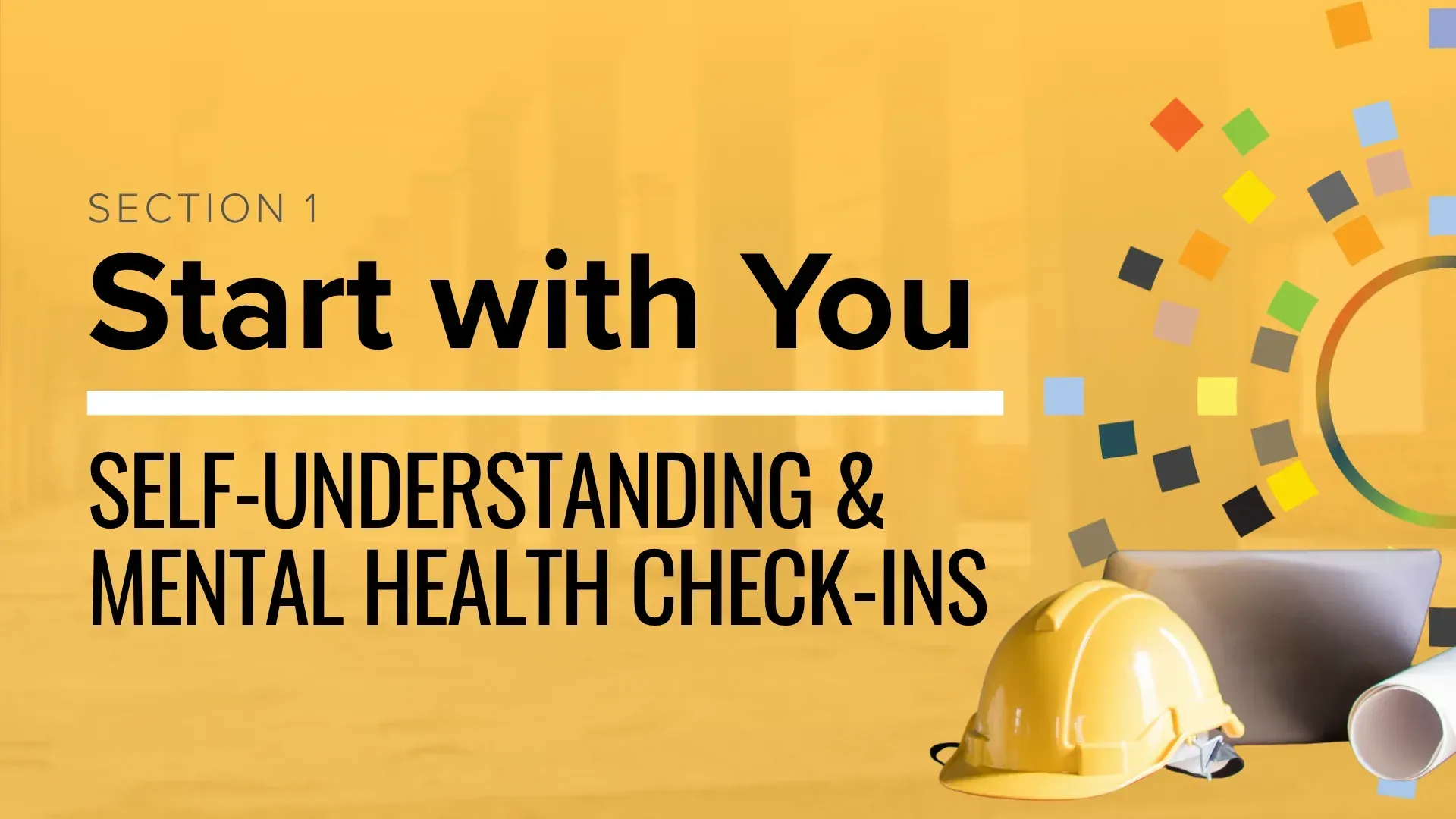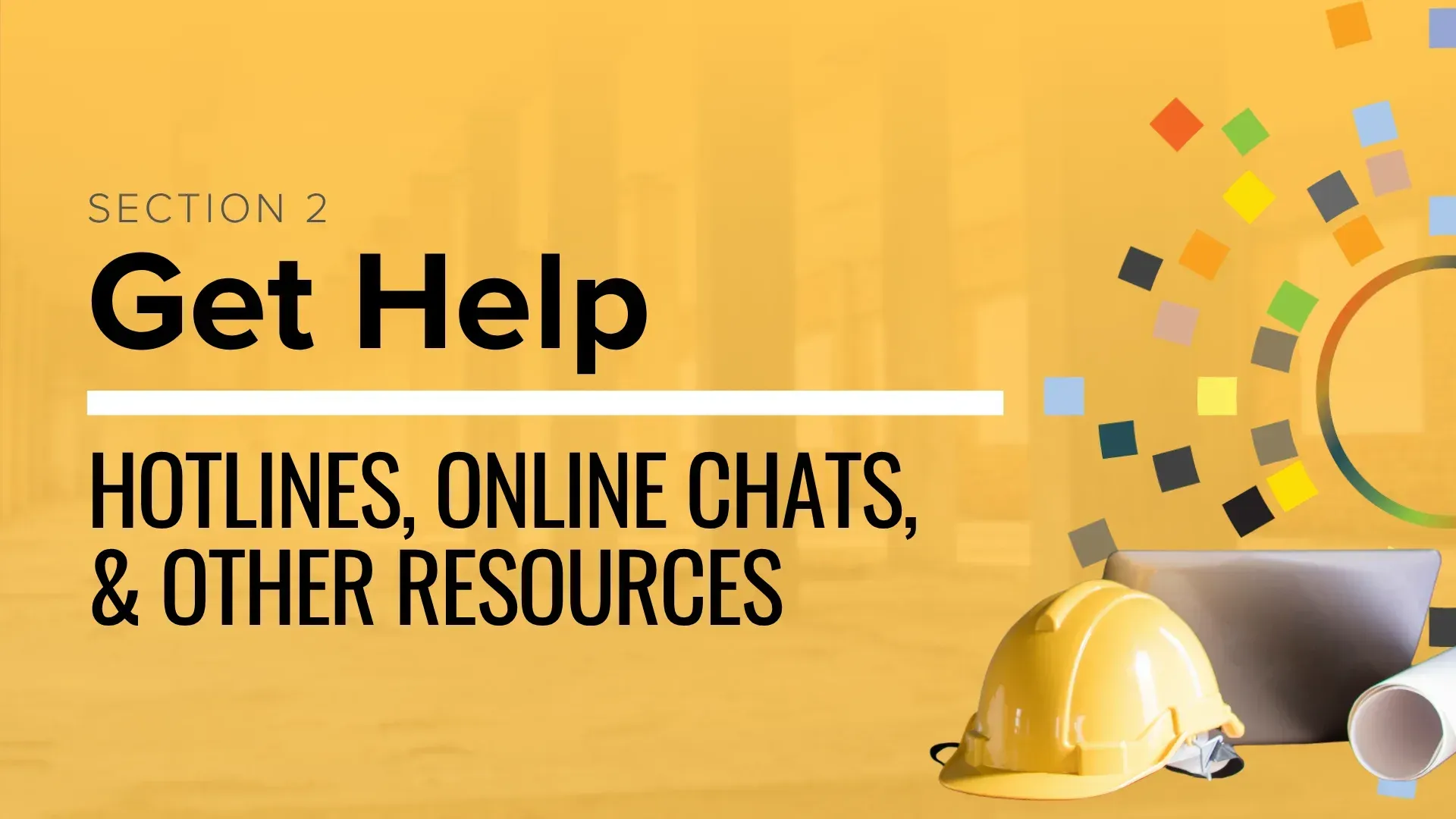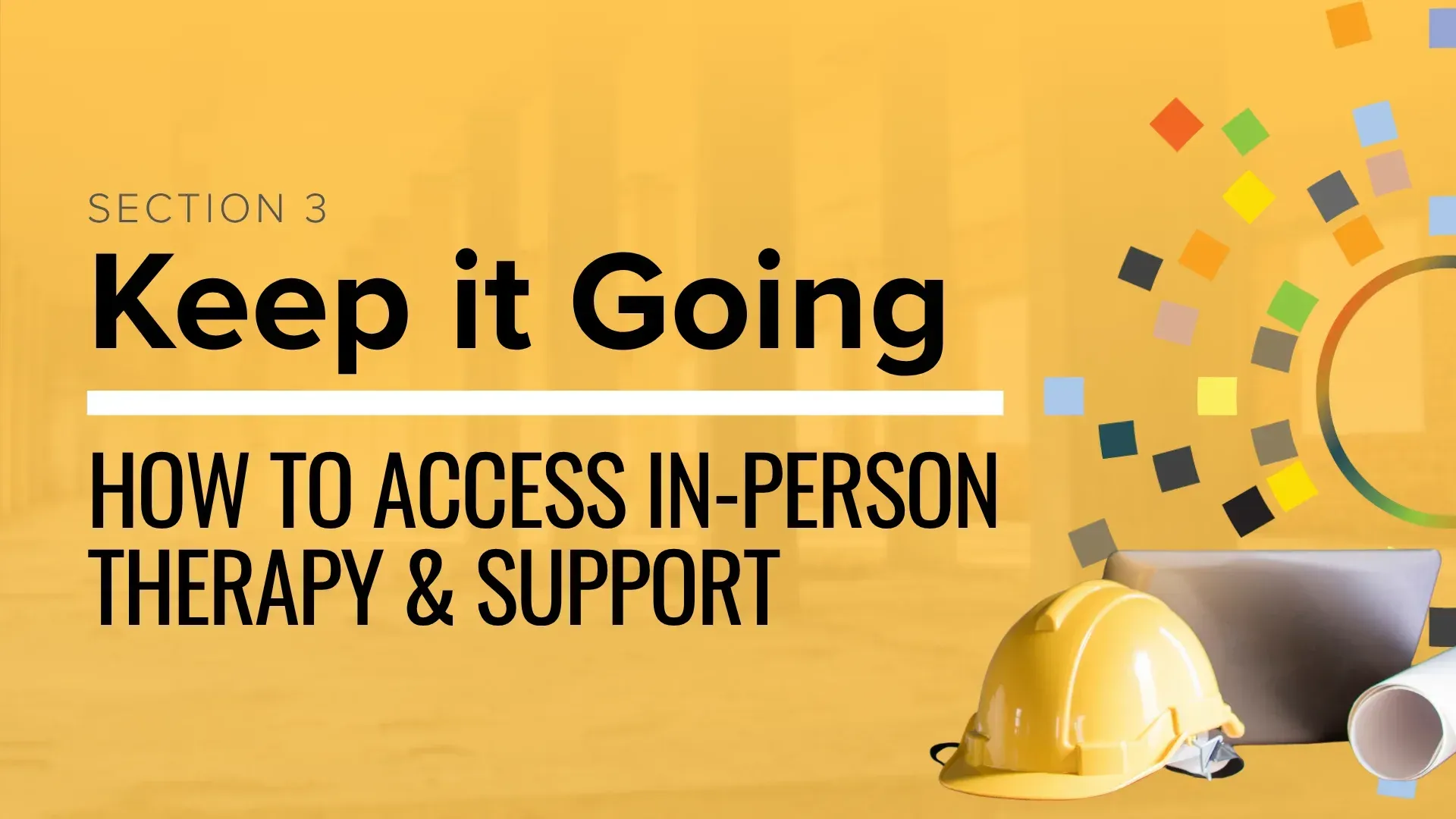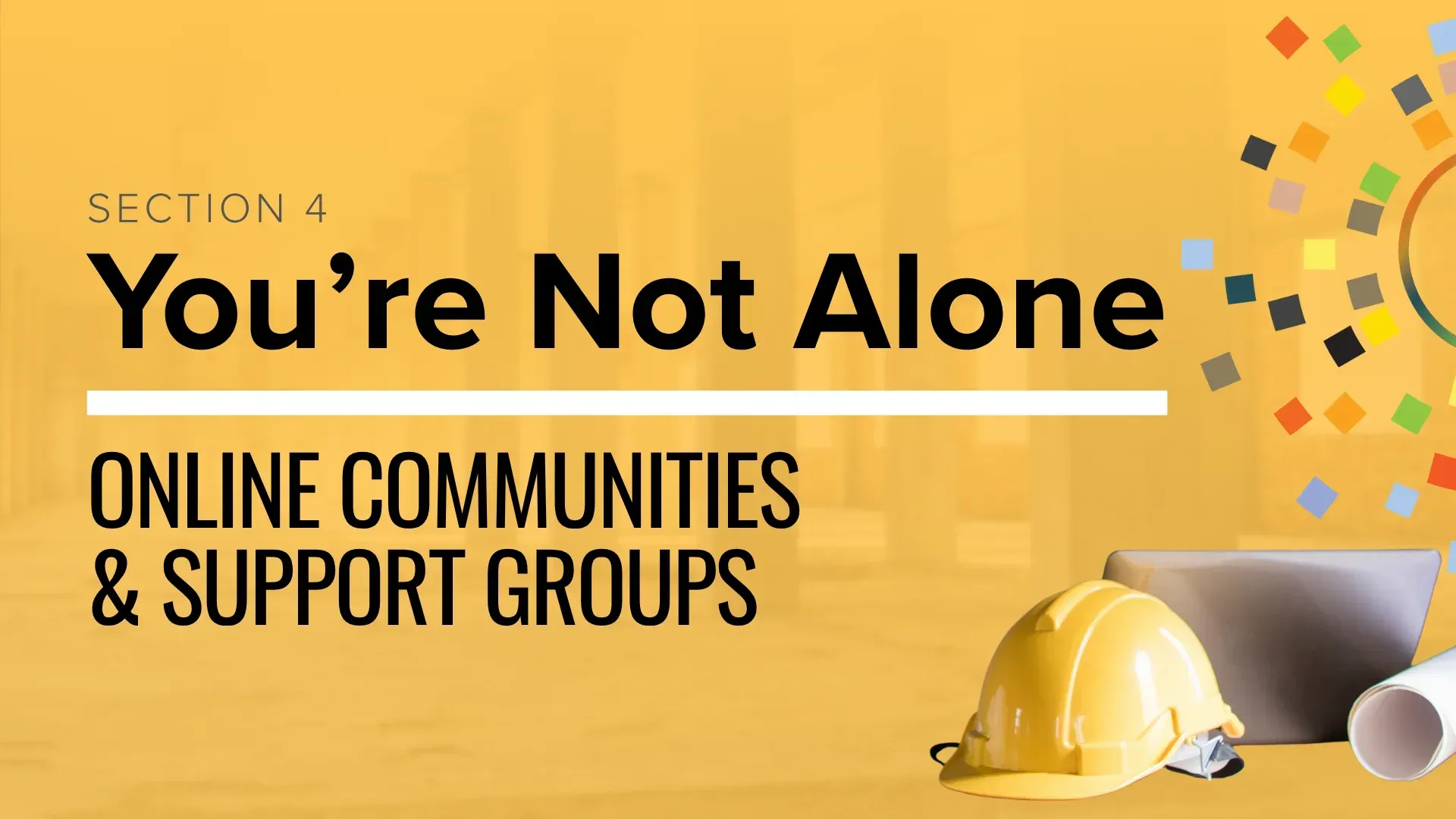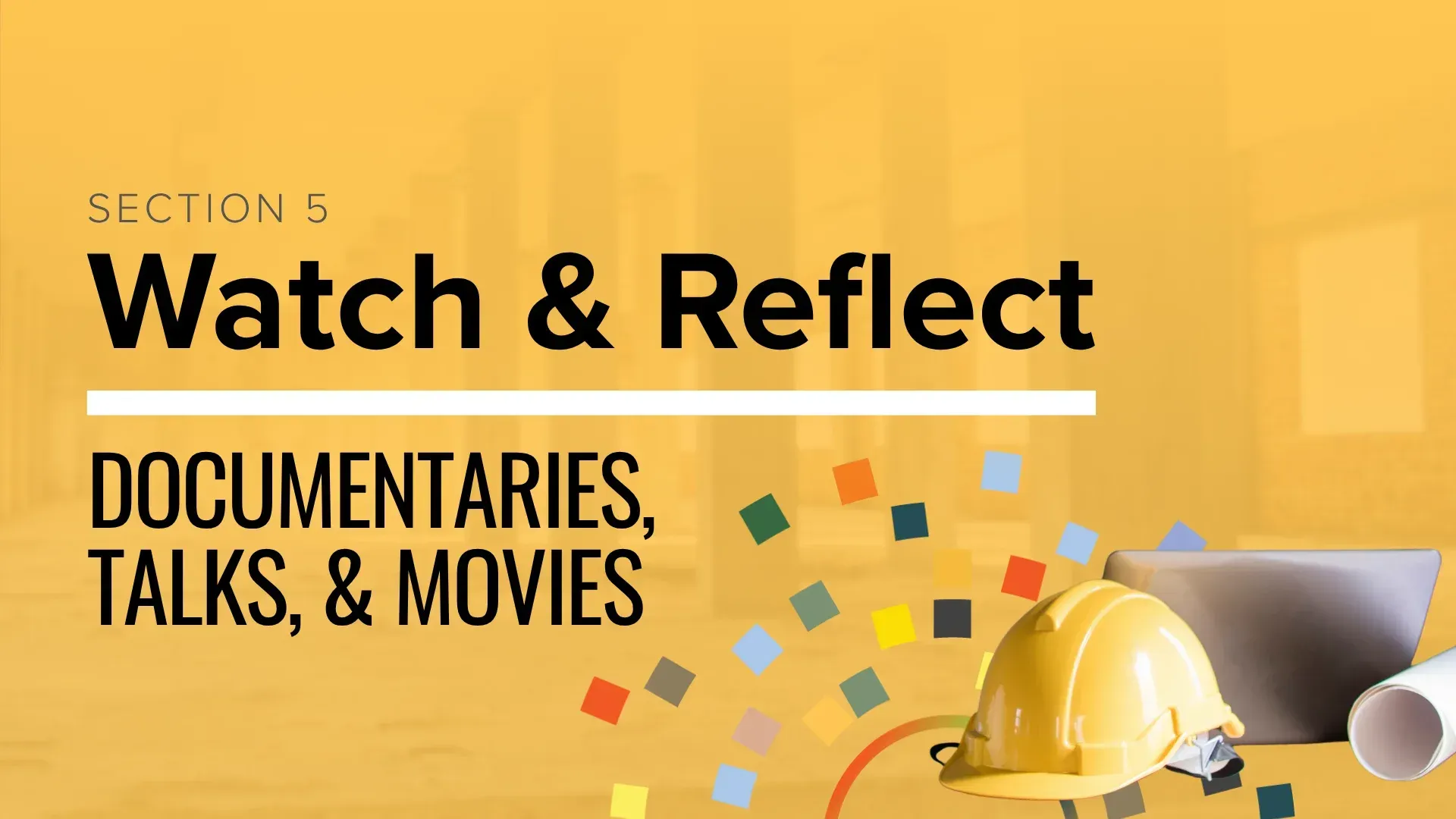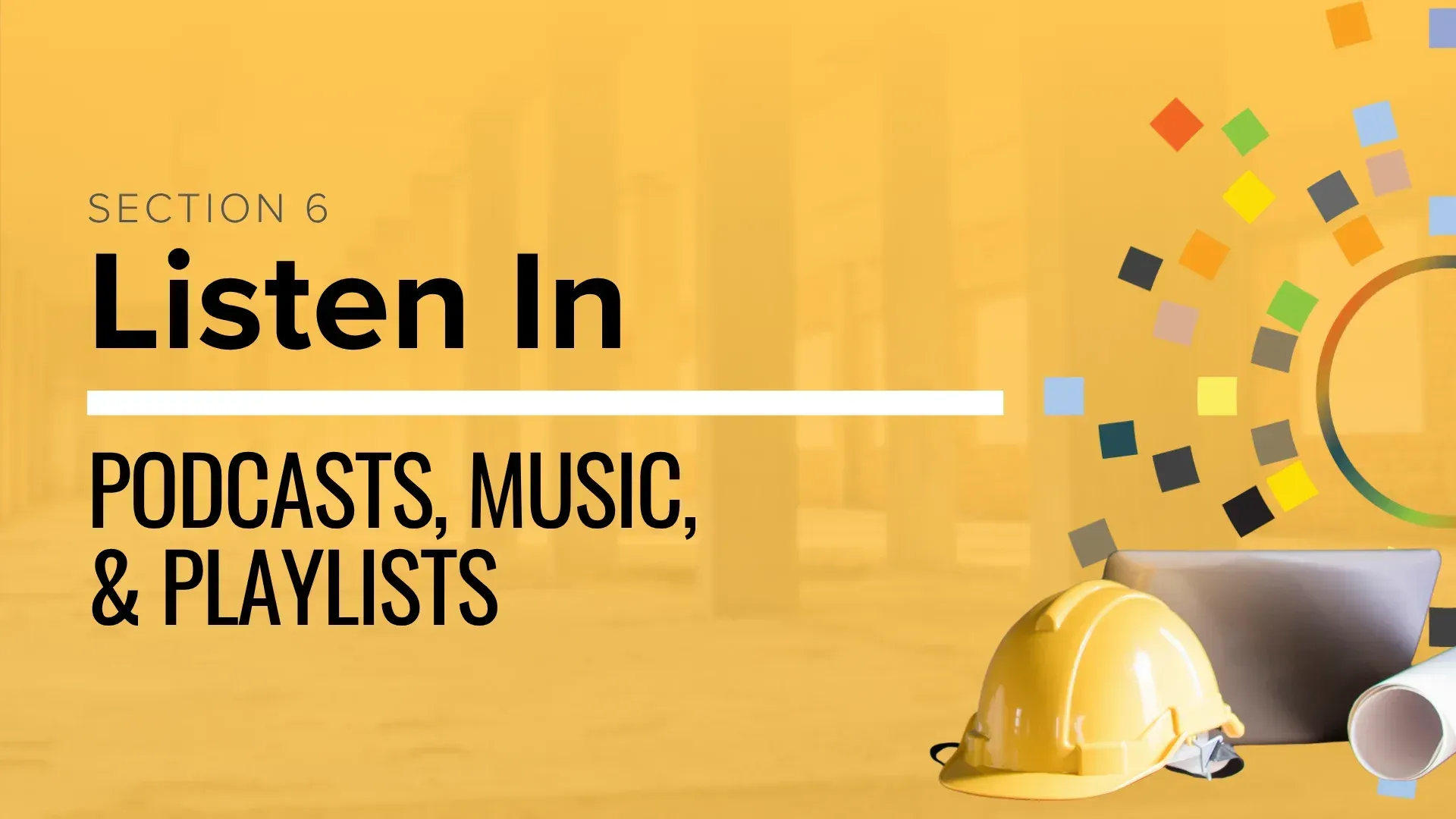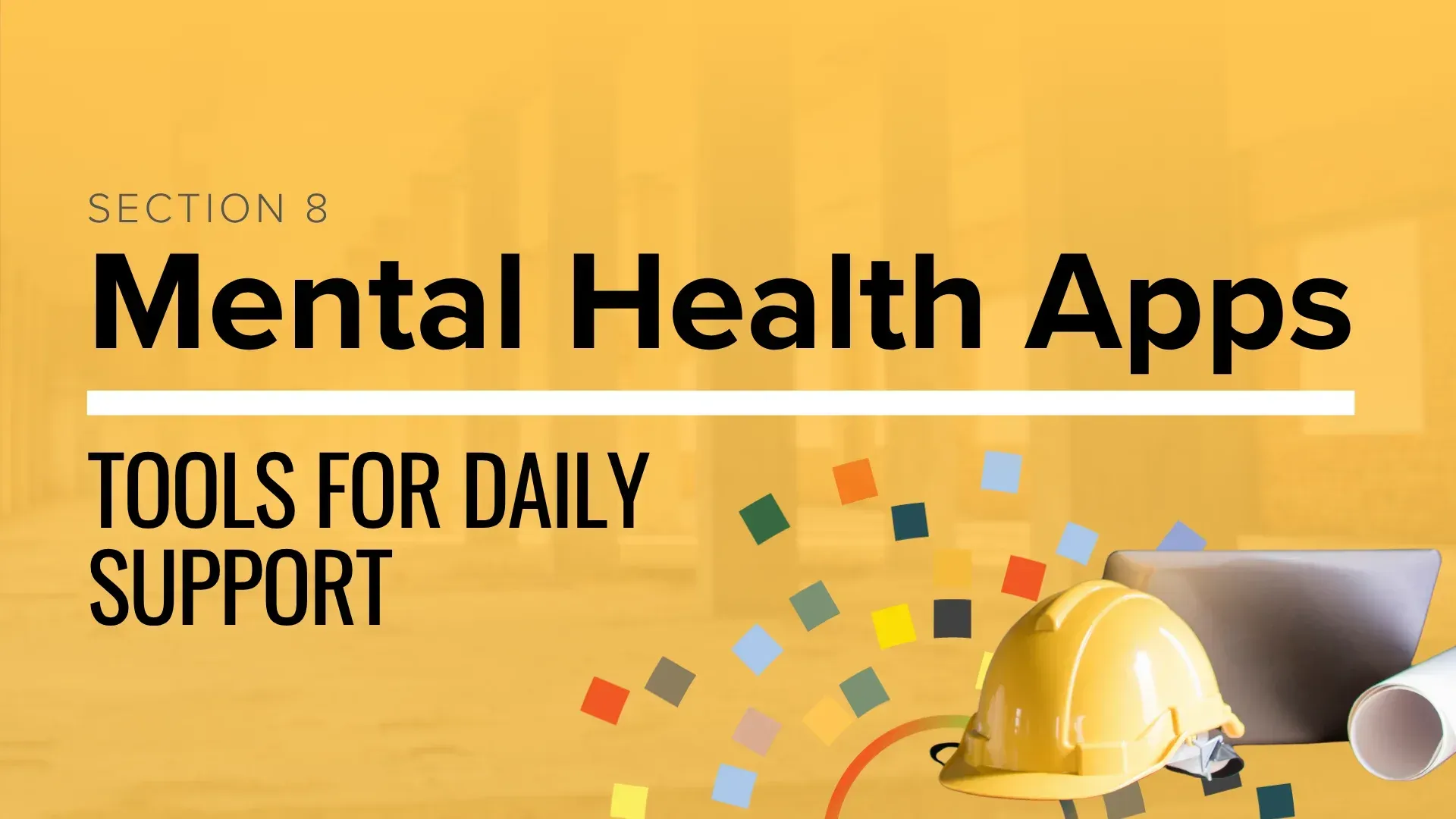Construction Inclusion Week Mental Health Resources: Section 10
Support at Work: Showing Up for Each Other
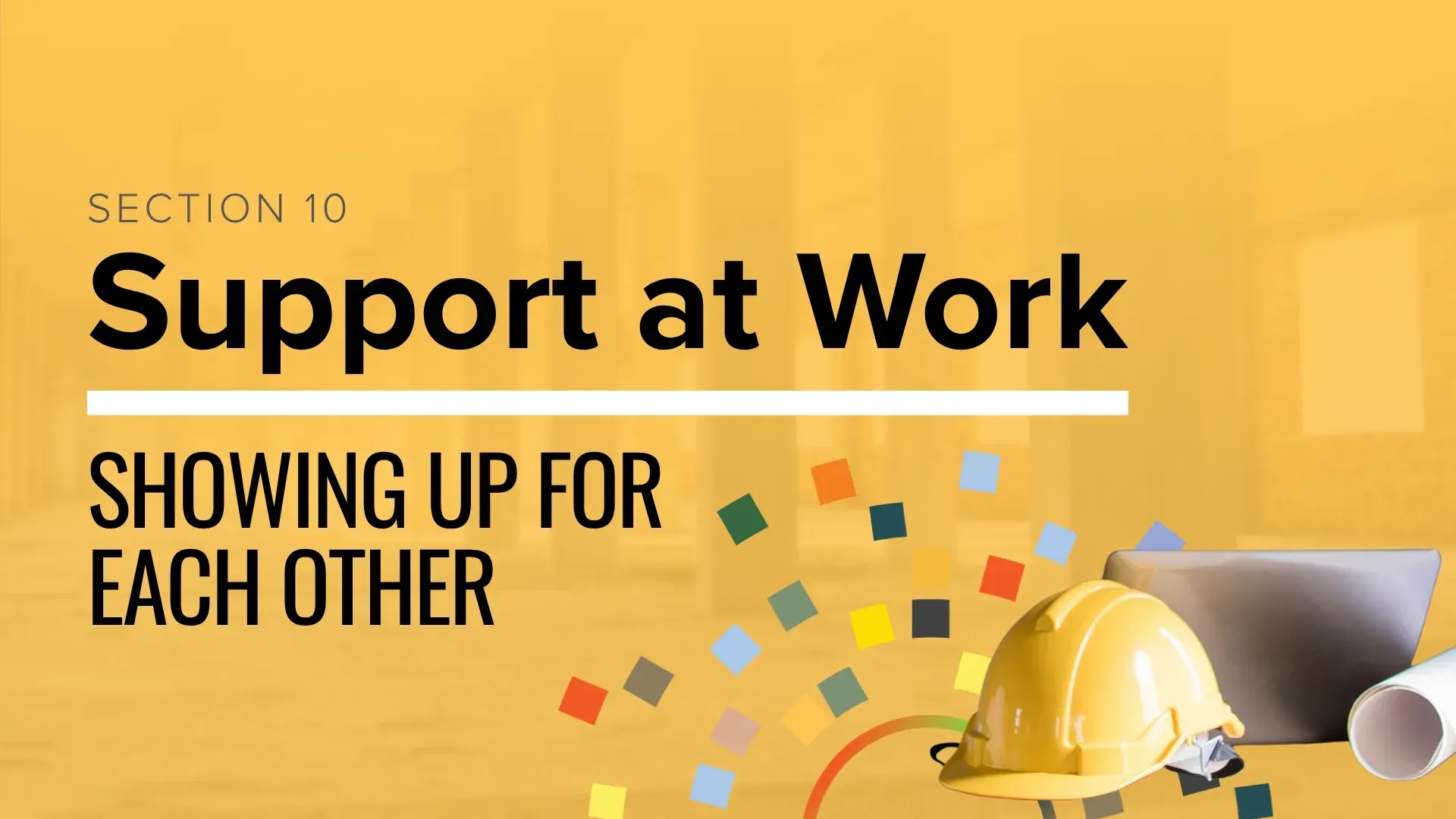
Developing a workplace culture that prioritizes mental health, emphasizing the importance of mutual support, awareness, and open communication among team members.
Mental health is not just an individual journey; it’s a collective responsibility that thrives in supportive environments. In any workplace, be it a construction site, an office, or a remote setting, employees spend a significant amount of time together, making it crucial to foster a culture of care and understanding. By actively supporting one another, recognizing signs of distress, and creating an atmosphere where everyone feels valued and safe to seek help, teams can enhance emotional well-being and productivity. This collaborative approach not only strengthens relationships but also contributes to a healthier, more resilient workplace.
Get Started
Explore Further
The Importance of Mutual Support
Creating a supportive work environment begins with recognizing that mental health is a shared responsibility. When team members actively support one another, it fosters a sense of belonging and community. This mutual support can manifest in various ways, such as checking in on colleagues, offering a listening ear, or simply being present during challenging times. By cultivating an atmosphere where individuals feel comfortable sharing their struggles, teams can break down barriers and reduce the stigma surrounding mental health. This openness encourages everyone to prioritize their well-being and seek help when needed, ultimately leading to a more cohesive and resilient team.
Recognizing Signs of Distress
Being attuned to the emotional well-being of colleagues is essential for creating a supportive workplace. Learning to recognize signs of distress, such as changes in behavior, withdrawal, or decreased productivity, can help you identify when someone may need support. It’s important to approach these situations with empathy and understanding, creating a safe space for open dialogue. By fostering a culture of awareness, team members can feel empowered to reach out and offer help, as well as to seek assistance for themselves. This proactive approach not only strengthens relationships but also enhances overall team dynamics and morale.
A Culture of Openness
Establishing a culture where individuals feel seen, valued, and safe to ask for help is crucial for promoting mental health in the workplace. This can be achieved through regular check-ins, team-building activities, and open discussions about mental health. Encouraging vulnerability and sharing personal experiences can help normalize conversations around emotional well-being, making it easier for team members to express their needs. By prioritizing mental health as a collective goal, organizations can create an environment where everyone feels supported and empowered to thrive, ultimately leading to increased productivity and job satisfaction.
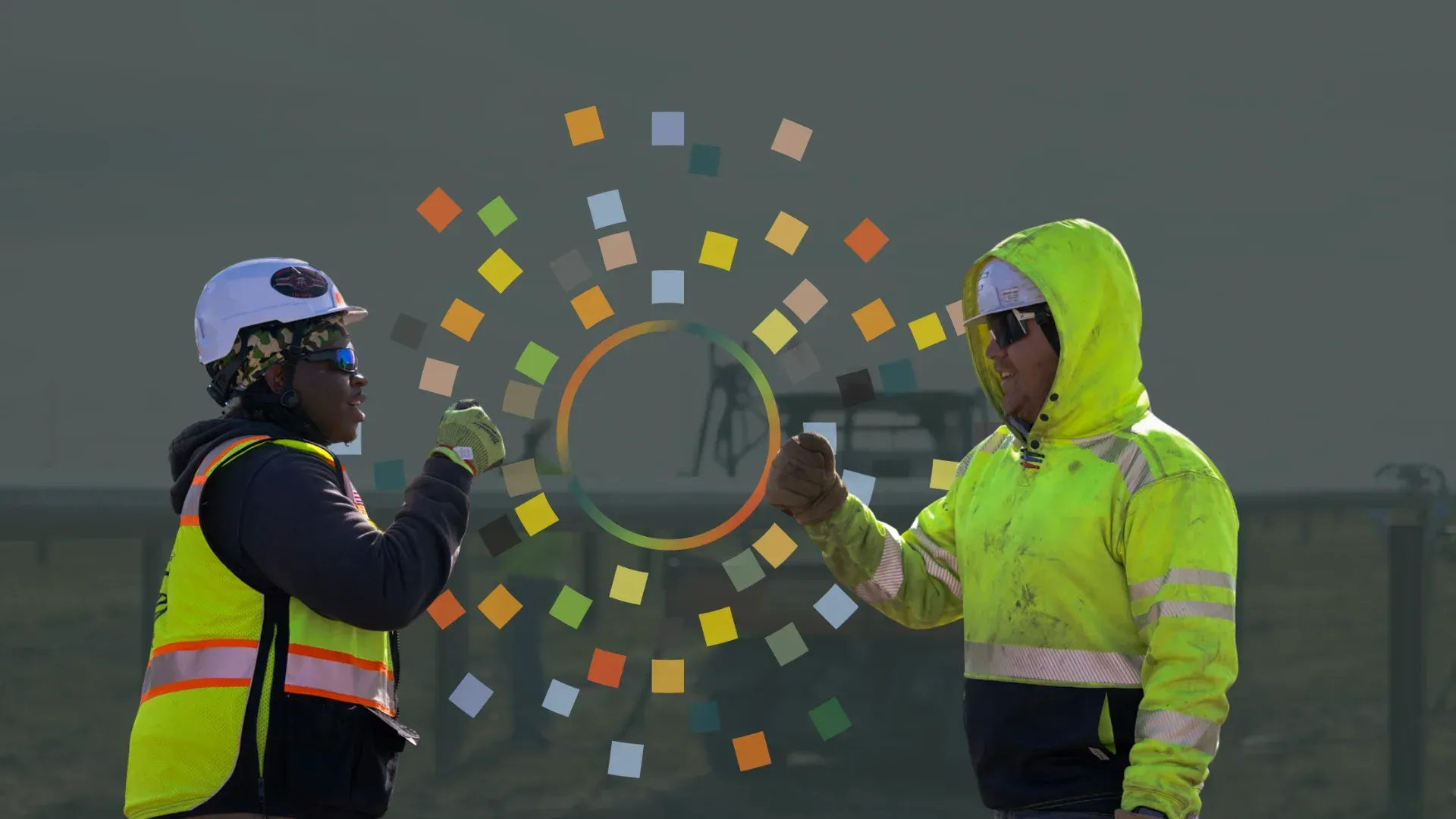
Resources
Whether you're assessing your emotional foundations, connecting with immediate support, or seeking professional guidance, the following resources work alongside your strengths to keep you strong on and off the job.
WAYS TO SHOW SUPPORT AND BUILD TRUST
Check in — and mean it - ask how someone’s really doing. Be willing to listen if the answer isn’t “fine.”
Notice what’s unsaid - if someone seems withdrawn, unusually quiet, distracted, or irritable, don’t ignore it. A simple “you doing okay lately?” can make a difference.
Let people know you’re a safe person - saying “if you ever need to vent or talk something out, I’m here” opens a door — especially for someone who might otherwise stay silent.
Make room for someone’s hard day - show grace when a coworker is off their game. Ask if they want help prioritizing. Offer to take one thing off their plate, if you can.
Recognize what’s going well - acknowledge effort, resilience, and growth — not just productivity. Try: “I see how much you’ve been juggling this week. Just wanted to say I notice.”
Respect boundaries - support doesn’t always mean engagement. Sometimes it means space. Check in without pushing.
Normalize conversations about mental health - say things like “mental health is part of health” or “we all have tough seasons.” You don’t need a script — just start the conversation.
Lead by example - take your breaks. Set boundaries. Be open about using therapy, needing rest, or hitting a wall. When leaders model care, others feel permission to do the same.
Don’t worry about having the perfect words - you can say “I’m not sure what to say, but I care about you” and that’s enough.
Share a resource that helped you - if something in this guide resonated with you, pass it along. A personal recommendation means more than a mass email.
ADDITIONAL WAYS TO SUPPORT COWORKERS HOLISTICALLY
Create moments of micro-connection - not everything needs to be deep. “Want coffee?” Or “how’s your kid doing?” can build trust over time.
Check in on new hires or quiet team members - help them find their rhythm and know they’re not invisible. Ask: “how’s it feeling here so far?”
Bridge the office-to-field divide - if you’re in the office, check in with field teams (and vice versa) outside of formal updates. “Anything you need from our end?” can mean a lot.
Frame mental health as safety - especially for field teams, reinforce that a clear head protects hands, feet, and lives: “taking care of yourself is part of the job.”
Celebrate the good moments, too - laugh together. Share a playlist. Mark milestones. Joy builds emotional resilience.
Model what recovery looks like - if you’ve been through burnout, therapy, or crisis and come out the other side, it’s okay to say so. Real stories reduce stigma.
HOLDING SPACE WITHOUT OVEREXTENDING YOURSELF
You can care deeply without carrying everything. Being there for someone who is struggling with their mental health is an act of courage and connection. You don’t need a psychology degree, a perfect response, or all the answers. Most of the time, your presence, calm, steady, and judgment-free, is what matters. Boundaries and empathy go hand in hand. Setting healthy limits doesn’t mean you’re backing away, it means you’re making space that’s safe, honest, and real. Trying to “fix” someone can unintentionally add pressure or create imbalance. But walking alongside them: listening, validating, and helping them access other resources, can be life-changing. If someone’s story feels too heavy, or you’re not the right person to hold it, try:
- Thank you for trusting me with this. You’re not alone in this — even if I can’t fix it, I’ll help you find someone who knows how.
- This sounds really heavy, and I don’t want to say the wrong thing. Would it be okay if we looked together for someone who’s better equipped to help?
- I care about you, and I want to make sure you get the kind of support that you deserve. I can stay with you while we figure out who that could be.
- I’m really honored you told me. I’m not qualified to help with this, but I can help you find someone who is.
- Let’s not try to do this alone. You don’t have to figure it all out right now — just the next step. I can help with that.
Remember: you are not the solution — you are a bridge.
And bridges don’t carry all of the weight. They help make it possible to cross.
Personal Assessment
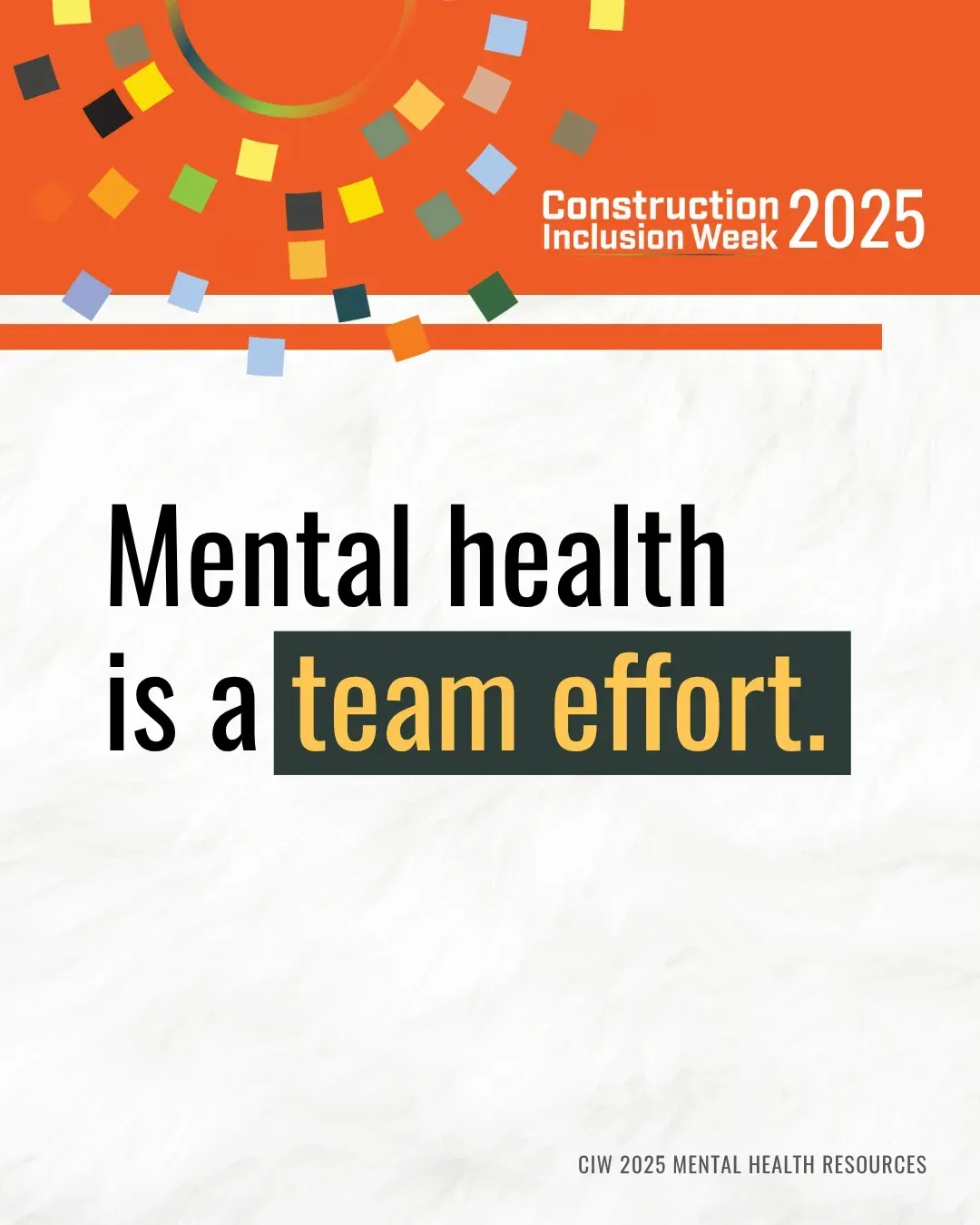
Gentle Prompts for Reflection
How do I currently support my colleagues’ mental health in the workplace?
What signs of distress do I notice in myself or my coworkers, and how can I address them?
How comfortable do I feel discussing mental health openly with my team?
What steps can I take to foster a more supportive environment for my colleagues?
In what ways can I encourage open communication about mental health within my team?
Quotes for Reflection
“Alone we can do so little; together we can do so much.” — Helen Keller
“The greatest gift of leadership is a boss who wants you to be successful.” — Jon Taffer
“Teamwork is the ability to work together toward a common vision.” — Andrew Carnegie
“The strength of the team is each individual member. The strength of each member is the team.” — Phil Jackson
“You don’t build a business—you build people—and people build the business.” — Zig Ziglar




